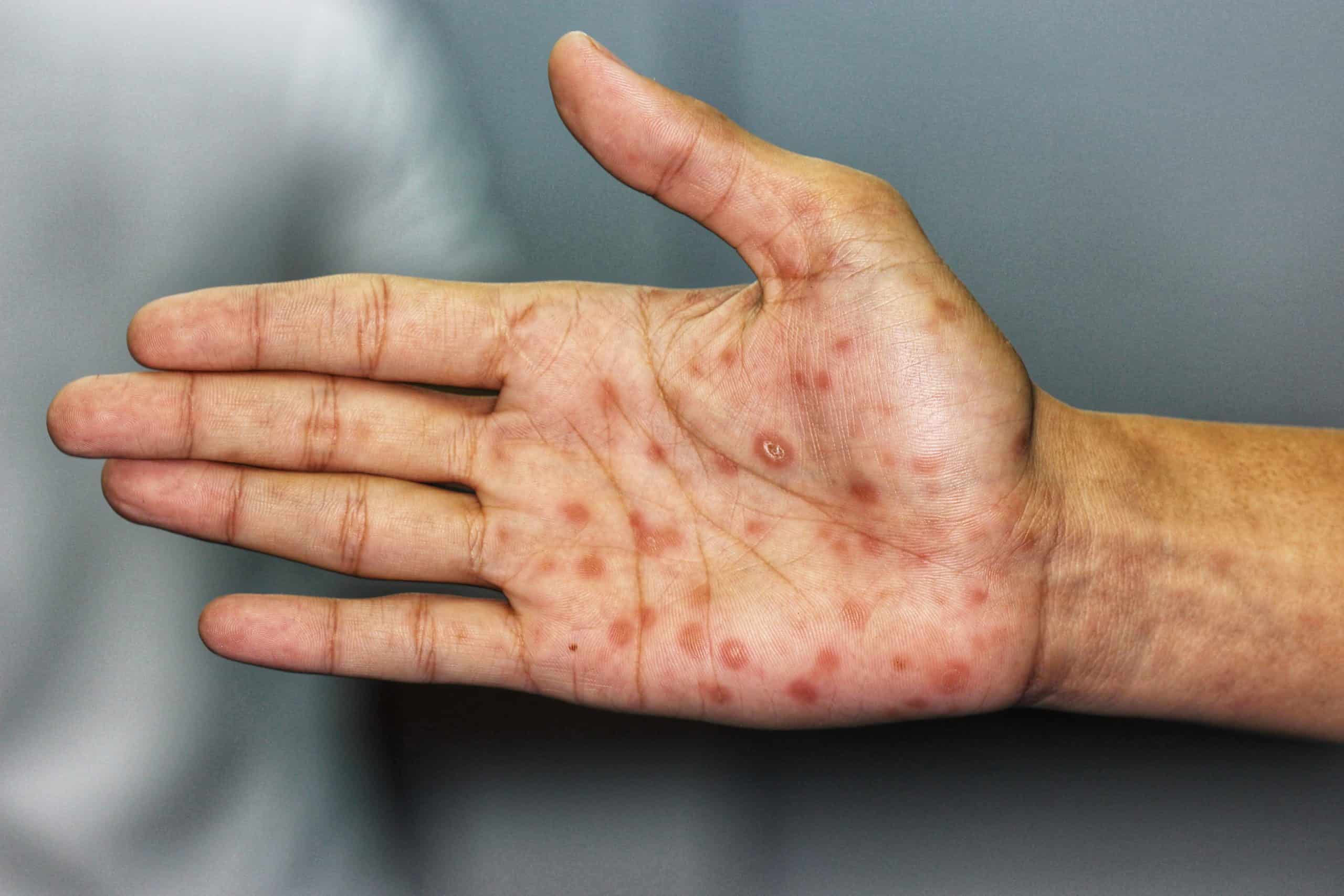
Syphilis is a sexually transmitted infection (STI) caused by the bacterium Treponema pallidum. It has been a significant public health concern for centuries and continues to pose a global health challenge. Understanding the key facts about syphilis is crucial for prevention, diagnosis, and treatment of this infectious disease. From its historical impact to its current prevalence, there are several intriguing aspects of syphilis that are worth exploring. In this article, we will delve into 10 interesting facts about syphilis, shedding light on its history, symptoms, treatment, and the importance of raising awareness about this often misunderstood infection.
Key Takeaways:
- Syphilis, named after a shepherd in a poem, has 4 stages of infection and can be passed from mother to baby. Early testing and penicillin treatment are crucial for prevention and management.
- Syphilis rates are increasing, but prevention through safe sex, regular testing, and public health efforts can help control the spread of this disease.
Syphilis is named after a mythical shepherd.
According to historical accounts, the name “syphilis” was coined by the Italian physician and poet Girolamo Fracastoro in his 1530 poem, “Syphilis sive morbus gallicus” (Syphilis or the French Disease). The name was derived from the character “Syphilus,” a mythical shepherd in the poem who was afflicted with the disease as a punishment from the gods.
Syphilis has four stages of infection.
The primary stage is characterized by the appearance of a painless sore at the site of infection. This is followed by the secondary stage, which may involve a skin rash and mucous membrane lesions. The latent stage has no visible symptoms, but the infection remains present in the body. If left untreated, the disease progresses to the tertiary stage, where it can cause severe damage to the heart, brain, and other organs.
Syphilis can be transmitted from mother to baby during pregnancy.
When a pregnant woman is infected with syphilis, the bacteria can be passed on to the fetus through the placenta, leading to congenital syphilis. This can result in serious complications for the baby, including premature birth, low birth weight, and congenital deformities.
The first effective treatment for syphilis was discovered in the early 20th century.
German scientist Paul Ehrlich developed the drug Salvarsan in 1909, marking the first time that a specific treatment for syphilis was available. This groundbreaking achievement revolutionized the approach to managing the disease and saved countless lives.
Syphilis rates have been increasing in recent years.
Despite being a largely preventable and treatable infection, the incidence of syphilis has been on the rise in many parts of the world. This concerning trend underscores the importance of continued education, awareness, and access to healthcare services for the prevention and management of syphilis.
Syphilis testing is crucial for early detection and treatment.
Regular screening for syphilis is recommended, especially for individuals at higher risk, such as those with multiple sexual partners or a history of sexually transmitted infections. Early diagnosis allows for prompt intervention and reduces the risk of complications associated with untreated syphilis.
Syphilis can mimic other conditions, making diagnosis challenging.
Due to its wide-ranging symptoms and potential to imitate other diseases, syphilis can be challenging to diagnose accurately. Healthcare providers must consider the possibility of syphilis when evaluating patients with symptoms that could be indicative of the infection.
Penicillin is the preferred treatment for syphilis.
Since the 1940s, penicillin has been the primary drug for treating syphilis. Depending on the stage of the infection and individual factors, healthcare providers may recommend different regimens of penicillin to effectively manage the disease.
Preventing syphilis involves practicing safe sex and regular testing.
Consistent and correct use of condoms, reducing the number of sexual partners, and undergoing regular STI screenings are essential components of syphilis prevention. Open communication with sexual partners and healthcare providers also plays a crucial role in preventing the spread of the infection.
Public health efforts play a vital role in syphilis control and prevention.
Community-based initiatives, public awareness campaigns, and accessible healthcare services contribute to the overall efforts to control and prevent syphilis. Collaboration between public health agencies, healthcare providers, and advocacy groups is essential in addressing the challenges posed by syphilis and promoting population-wide health.
Conclusion
Syphilis is a fascinating yet dangerous disease that has plagued humanity for centuries. Understanding its history, symptoms, and treatment options is crucial in combating its spread. As we’ve explored these 10 interesting facts about syphilis, it’s evident that education and awareness are key in preventing and managing this sexually transmitted infection. With ongoing research and medical advancements, there is hope for better control and treatment of syphilis in the future. It’s essential for individuals to prioritize regular testing and safe sexual practices to protect themselves and others from this persistent infection.
FAQs
What are the early symptoms of syphilis?
The early symptoms of syphilis can include painless sores, rash, fever, and fatigue. It’s important to seek medical attention if you experience any of these symptoms after engaging in unprotected sexual activity.
How is syphilis diagnosed?
Syphilis is diagnosed through blood tests that detect the presence of the bacteria that causes the infection. It’s crucial to undergo regular testing, especially if you are sexually active or have multiple partners.
Can syphilis be cured?
Yes, syphilis can be cured with the appropriate antibiotics if detected and treated early. However, if left untreated, it can lead to severe health complications.
Is syphilis only transmitted through sexual contact?
Syphilis is primarily transmitted through sexual contact, but it can also be passed from mother to baby during pregnancy or childbirth.
What is the long-term impact of untreated syphilis?
Untreated syphilis can lead to serious health issues, including damage to the heart, brain, and other organs. It can also increase the risk of HIV transmission.
How can syphilis be prevented?
Practicing safe sex, using condoms, and being in a mutually monogamous relationship can reduce the risk of syphilis. Regular testing and early treatment are also crucial in preventing its spread.
Is syphilis common in the modern era?
While syphilis rates had declined significantly, there has been a resurgence in recent years, emphasizing the importance of continued education, awareness, and proactive healthcare measures.
Can syphilis affect anyone?
Yes, syphilis can affect individuals of any age, gender, or sexual orientation. It does not discriminate and can impact anyone engaging in unprotected sexual activity.
Are there any complications associated with syphilis treatment?
Complications from syphilis treatment are rare, but individuals may experience allergic reactions to the antibiotics. It’s essential to communicate any concerns with a healthcare provider.
Is there a vaccine for syphilis?
Currently, there is no vaccine for syphilis. Prevention primarily revolves around safe sexual practices, regular testing, and prompt treatment if diagnosed.
Syphilis facts fascinate, but curiosity craves more. Delving deeper reveals cinematic connections in "The Quiet Duel," a film exploring the disease's impact. Folk song origins also beckon, as "Cotton Eyed Joe" lyrics hint at hidden meanings. Uncovering these tales offers fresh perspectives on history, culture, and the human condition.
Was this page helpful?
Our commitment to delivering trustworthy and engaging content is at the heart of what we do. Each fact on our site is contributed by real users like you, bringing a wealth of diverse insights and information. To ensure the highest standards of accuracy and reliability, our dedicated editors meticulously review each submission. This process guarantees that the facts we share are not only fascinating but also credible. Trust in our commitment to quality and authenticity as you explore and learn with us.


